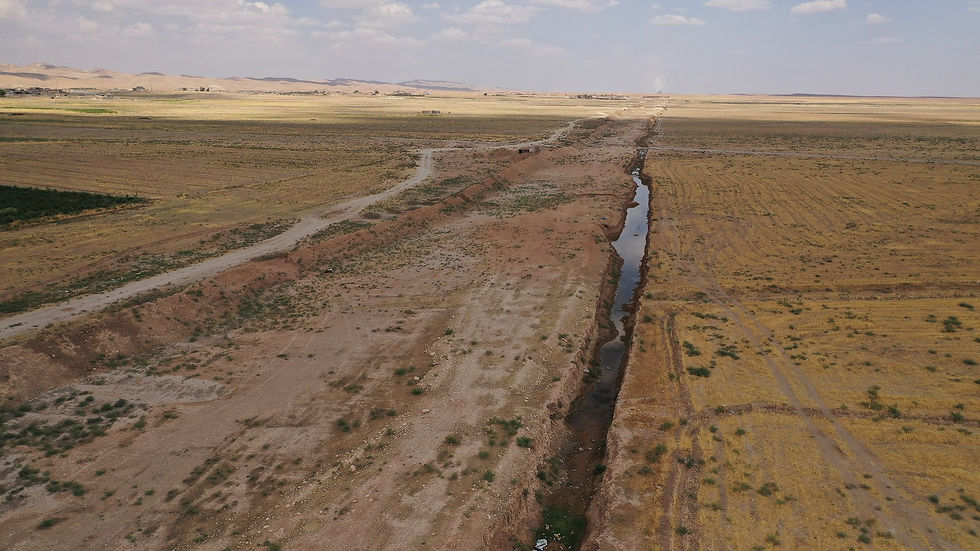A major water crisis is developing in the Middle East, with more than 12 million people in Syria and Iraq losing access to fresh water, food supplies and electricity.
According to a report compiled by 13 international aid groups working in the region, drinking and agricultural water is growing dangerously scarce due to rising average temperatures, record low levels of rainfall, and drought.
Dams are drying up, which is disrupting hydro-electricity supplies, and in turn impacting essential infrastructure such as health facilities.

Drought-affected agricultural land in Sinjar, Northern Iraq, August 2021. Source: Fared Baram/ NRC
80 per cent of the population in Syria and Iraq rely on two major rivers, Euphrates and Tigris, for their fresh water supply. But these rivers begin in Turkey, leaving Syria and Iraq very little control over their flow.
An agreement between Turkey and Syria in 1987 assured an average flow rate of 500 cubic meters per second across its borders, however local engineers are reporting a decreased flow of 200 cubic meters per second in recent months. Turkish regulators are not entirely to blame, with the region experiencing its worst drought in 70 years.
Local farmers are struggling, with many having spent their savings and fallen into debt to keep their crops and animals alive.
“Because of the drought I was unable to harvest any wheat,” Hamid Ali from Baaj, one of the worst affected districts in Ninewa, Iraq. “Now I am overwhelmed with debt.”

Local Sinjar farmer shows his tomato crops ravaged by the drought. Source: Fared Baram/ NRC
“The total collapse of water and food production for millions of Syrians and Iraqis is imminent,” said Carsten Hansen, regional director for the Norwegian Refugee Council.
The water crisis is compounded by conflict in the region, with hundreds of thousands of Iraqis and Syrians displaced, the COVID-19 pandemic, and decades of severe economic decline.
Multiple aid groups, including the Danish Refugee Council, CARE, Action Against Hunger and Mercy Corps, are calling for immediate action and assistance.
“The situation demands that authorities in the region and donor governments act swiftly to save lives," said CARE’s Regional Director in the Middle East and North Africa Nirvana Shawky.
“In the longer term, beyond emergency food and water, they need to invest in sustainable solutions to the water crisis”.

Dry olive trees in Kuri Jami village, Sinjar, August 2021. Source: Fared Baram/ NRC
The Danish Refugee Council’s Middle East Regional Director Gerry Garvey expects the water crisis worsen and is worried about the ramifications.
“It is likely to increase conflict in an already destabilized region. There is no time to waste. We must find sustainable solutions that would guarantee water and food today and for future generations,” Director Garvey said.

Comments